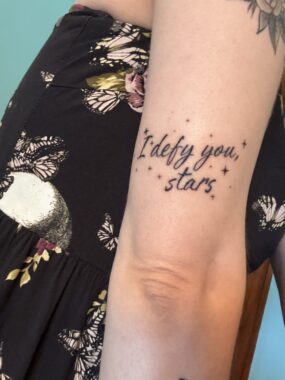Tips for managing burnout from so many doctor appointments
I've found ways to make the reality of chronic appointments easier
Written by |

I often wonder how many hours a year I spend in waiting rooms. I’ve been avoiding doing the math, but part of me wants to know.
Because of my hypoparathyroidism and multiple comorbidities, I go to two to five medical appointments a week. An average of 3.5 appointments a week for 52 weeks, at around 15 minutes per waiting room (a generously low wait time), puts me at 45.5 hours. Nearly two full days of my life are spent in waiting rooms yearly. That’s a staggering realization.
Plus, those 45.5 hours don’t count the duration of the appointment, the drive to and from the office, the time I sit on hold to book the appointment, and the number of times I need to call my insurance company to argue about the bill.
Putting off the inevitable
It’s no wonder that so many people with health issues battle chronic illness burnout. Dealing with my own body is a constant and consistent job, and there’s nowhere to escape.
Burnout is part of the reason I neglected to get help for my arm pain until it profoundly disrupted my life. It’s why I put off getting my eyes tested for new glasses despite having to go to the same clinic for glaucoma testing. It’s why I cried on the phone to the insurance agent when calling for the fifth time to fight about the same bill I get every year for the same test that is covered. (“Please just tell me what billing code I need this year.”)
In addition to therapy and self-care — which includes compassion toward myself and giving back to others — I found ways to make the reality of chronic appointments easier. When it’s an appointment with a specialist, I ask the staff when the shortest wait time of the day is. It’s not always the first appointment of the day, but sometimes it’s the first after lunch.

Heather Novak’s “Romeo and Juliet” tattoo is a quote from Act 5, Scene 1. (Courtesy of Heather Novak)
If I have a favorite technician or assistant, I’ll often schedule my appointments when I know they’re working. Looking forward to catching up with someone makes the day easier.
For the really hard appointments, such as ultrasounds and mammograms, I bribe myself with a treat — a special edition of my favorite book, a new phone case, maybe even a visit to the gluten-free bakery. Something that brings me joy that is desirable enough to get me to do the hard thing.
On the hardest days, I give myself some tough love while looking at one of my new tattoos. After seeing Sam Gold’s “Romeo + Juliet” on Broadway last year, where I met two of my favorite actors, I got a tattoo to commemorate the adventure and also honor how influential the play has been since I first read it in sixth grade.
The tattoo reminds me I was brave enough to fly to New York and sit outside the stage door for hours to meet some awesome people with some of my best friends. If I can do that, then I can pick up the phone and make one call. The problem with knowing I can do amazing things is that I can no longer get away with not doing important and scary things.
If I want to keep chasing my dreams and filling my life with amazing stories, then I also have to keep my body as healthy and stable as possible. This won’t happen by accident.
As I wrote this column, I realized that I reframed the entire thing. Maybe it’s not about how much time I’m wasting in waiting rooms. Maybe it’s about thinking of this time as an investment in myself, my body, my health, and my future. Hopefully these are words I will remember the next time I’m dreading taking a seat and waiting for my name to be called.
Note: Hypoparathyroidism News is strictly a news and information website about the disease. It does not provide medical advice, diagnosis, or treatment. This content is not intended to be a substitute for professional medical advice, diagnosis, or treatment. Always seek the advice of your physician or another qualified health provider with any questions you may have regarding a medical condition. Never disregard professional medical advice or delay in seeking it because of something you have read on this website. The opinions expressed in this column are not those of Hypoparathyroidism News or its parent company, Bionews, and are intended to spark discussion about issues pertaining to hypoparathyroidism.






Leave a comment
Fill in the required fields to post. Your email address will not be published.